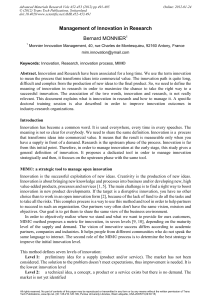Master in International Management Core Period Course Description*
advertisement
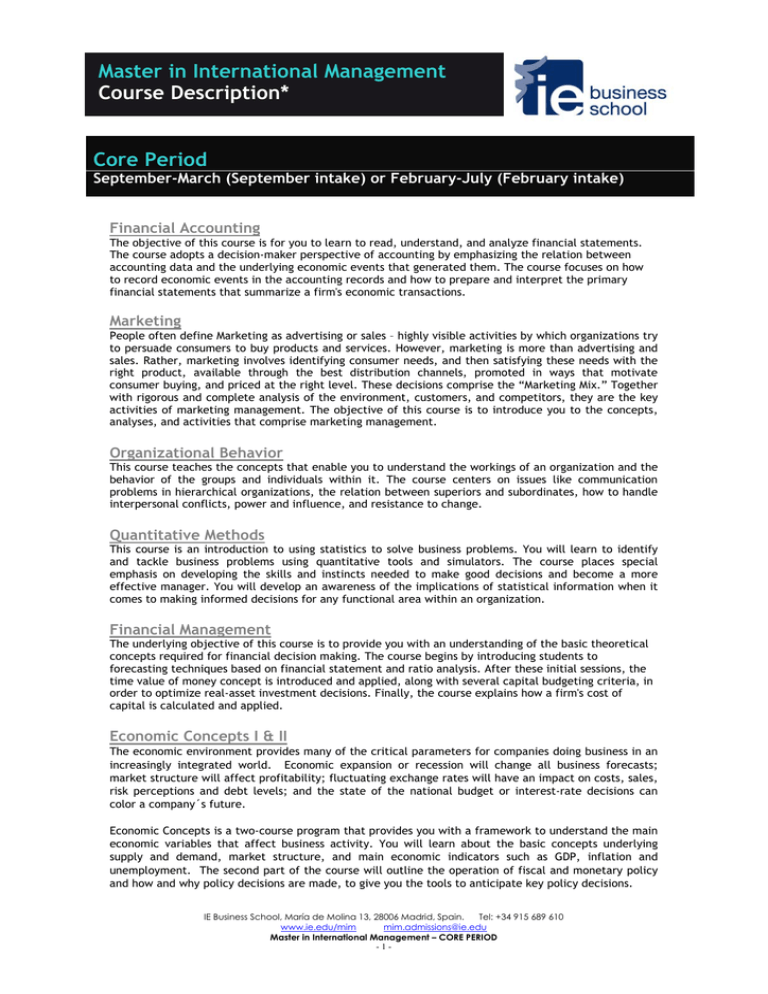
Master in International Management Course Description* Core Period September-March (September intake) or February-July (February intake) Financial Accounting The objective of this course is for you to learn to read, understand, and analyze financial statements. The course adopts a decision-maker perspective of accounting by emphasizing the relation between accounting data and the underlying economic events that generated them. The course focuses on how to record economic events in the accounting records and how to prepare and interpret the primary financial statements that summarize a firm's economic transactions. Marketing People often define Marketing as advertising or sales – highly visible activities by which organizations try to persuade consumers to buy products and services. However, marketing is more than advertising and sales. Rather, marketing involves identifying consumer needs, and then satisfying these needs with the right product, available through the best distribution channels, promoted in ways that motivate consumer buying, and priced at the right level. These decisions comprise the “Marketing Mix.” Together with rigorous and complete analysis of the environment, customers, and competitors, they are the key activities of marketing management. The objective of this course is to introduce you to the concepts, analyses, and activities that comprise marketing management. Organizational Behavior This course teaches the concepts that enable you to understand the workings of an organization and the behavior of the groups and individuals within it. The course centers on issues like communication problems in hierarchical organizations, the relation between superiors and subordinates, how to handle interpersonal conflicts, power and influence, and resistance to change. Quantitative Methods This course is an introduction to using statistics to solve business problems. You will learn to identify and tackle business problems using quantitative tools and simulators. The course places special emphasis on developing the skills and instincts needed to make good decisions and become a more effective manager. You will develop an awareness of the implications of statistical information when it comes to making informed decisions for any functional area within an organization. Financial Management The underlying objective of this course is to provide you with an understanding of the basic theoretical concepts required for financial decision making. The course begins by introducing students to forecasting techniques based on financial statement and ratio analysis. After these initial sessions, the time value of money concept is introduced and applied, along with several capital budgeting criteria, in order to optimize real-asset investment decisions. Finally, the course explains how a firm's cost of capital is calculated and applied. Economic Concepts I & II The economic environment provides many of the critical parameters for companies doing business in an increasingly integrated world. Economic expansion or recession will change all business forecasts; market structure will affect profitability; fluctuating exchange rates will have an impact on costs, sales, risk perceptions and debt levels; and the state of the national budget or interest-rate decisions can color a company´s future. Economic Concepts is a two-course program that provides you with a framework to understand the main economic variables that affect business activity. You will learn about the basic concepts underlying supply and demand, market structure, and main economic indicators such as GDP, inflation and unemployment. The second part of the course will outline the operation of fiscal and monetary policy and how and why policy decisions are made, to give you the tools to anticipate key policy decisions. IE Business School, María de Molina 13, 28006 Madrid, Spain. Tel: +34 915 689 610 www.ie.edu/mim mim.admissions@ie.edu Master in International Management – CORE PERIOD -1- Creative Management Thinking The objective of this course is to teach you to think critically and creatively. The course places you in an environment pervaded by the free exchange of ideas. This will challenge your intellectual development and will enable you to cast your eyes to the outside world – beyond the immediate environment. At the same time, you will develop the flexibility to easily adapt to today’s fast changing environment. Career Strategy I & II The program offers a magnificent opportunity of developing the skills and leadership competencies that will help maximize your “employability” and “market value”, given that now is the time to take control of your personal and professional development. Thanks to the extensive experience of IE professors, the Careers Management Center and the external consultants who work with us, we aim to provide the best possible support in the form of the most efficient tools to negotiate the labor market after completing your master program. Management Accounting This course emphasizes the use of accounting information for internal planning and control purposes, as opposed to the external disclosure focus of financial accounting. You will learn alternative methods of preparing managerial accounting information in the first part of this course, while the remainder of the course examines how these methods are used by companies. Managerial accounting is a company’s internal language, and is used for decision-making, production management, product design and pricing, performance evaluation, and motivating employees. Entrepreneurship This course places you in the position of the entrepreneur, you learn to analyze opportunities, evaluate startups and produce complete business plans. You will learn about potential sources of business ideas, about how to apply management tools to fledgling companies, explore the different sources of financing for new on-line or off-line ventures, and analyze every aspect of the problems encountered during the process of implementing a business plan. Competitive Strategy This course will challenge you to develop a thorough understanding of the internal and external factors that shape a firm's ability to create value, and familiarize you with tools to analyze industries, resources and competitive interactions, both on the corporate and individual business level. Perhaps more importantly, the course strives to instill a strategic mindset that will enable you to go beyond simply applying tools to deriving a deep understanding of competitive behavior. Operations and Supply Chain Management As goods and services are produced and distributed, they move through a set of interrelated operation and processes. The design of these operations for gaining a strategic advantage, investments in improving their efficacy, and controlling these operations to meet performance objectives is the domain of Operations and Supply Chain Management. Information Systems This course focuses on enabling and transforming roles of IS in creating a long-term vision for the organization in the digital economy. Covering areas like relationships with suppliers, public and private clients; and how these relations are changing due to the effects of fast-developing new technologies. This course cuts through both the dotcom hype and the bubble-burst to analyze the real value created by IT systems, along with the challenges to come in this new, increasingly competitive environment. Corporate Finance This course introduces you to the analysis of the financial structure of business organizations – with the aim to optimize this structure using different financial tools and selecting the most appropriate funding methods (share issue, bond issue, external debt, etc.). The course ends with a comprehensive application of all financial concepts in the context of firm valuation techniques, including other corporate finance issues such as MBOs, LBOs, M&As. The structure/courses may be altered depending on the faculty, market dynamics and company demands. IE Business School, María de Molina 13, 28006 Madrid, Spain. Tel: +34 915 689 610 www.ie.edu/mim mim.admissions@ie.edu Master in International Management – CORE PERIOD -2-
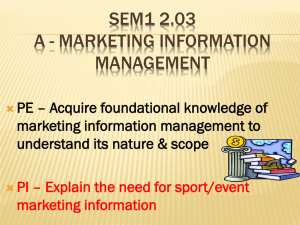
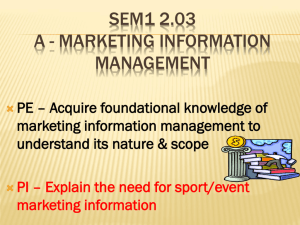

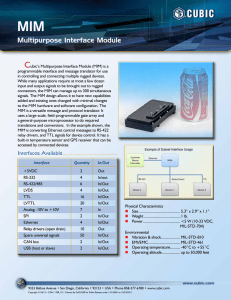
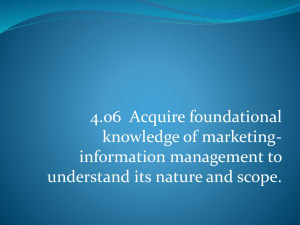


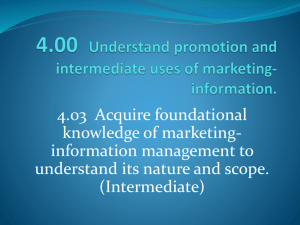

![Anti-Cytokeratin antibody [AE1AE3] ab174707 Product datasheet 1 Image Overview](http://s2.studylib.net/store/data/012747555_1-02dfbd38a388870acc4075884fa092c1-300x300.png)

